While many Irish consumers aren’t comfortable increasing their weekly food spend, there is a growing cohort who are making the choice to purchase organic foods. Why is this?
Karen Tyner, senior business manager at Bord Bia, says organic growth has been faster than conventional in the past few years and has enjoyed seeing a growing range of organic products on supermarket shelves.

Karen Tyner.
“Domestically, our most recent consumer research shows that the appetite for organic produce is increasing among Irish consumers,” she says. “For example, in 2020 we saw that one quarter of consumers bought more organic food since the onset of COVID-19, with 47% of those surveyed willing to pay more for it.”
The market research to which she refers also indicates health is the number one reason Irish consumers are making organic purchases, followed by environmental reasons. Additionally, “taste” came in third as to why consumers make organic purchases, with 21% of respondents saying they feel organic foods taste better.
That said, it should be noted that two thirds of respondents said they would still rather buy local than organic.
A global reputation
Internationally, Karen believes the future for Irish organic foods is promising.
“We believe there’s a growing opportunity for organic exporters, particularly in the German, French and Dutch markets, where Ireland enjoys a strong image as a food producer,” she says. “Germany is the largest European market for organics and it’s where we focus a lot of marketing activity.”
However, she also warns that the organic market is generally the first to be impacted by economic downturns.
“Given the current uncertain economic outlook, we need to monitor the market carefully to ensure Irish producers can proactively respond to any changes or drops in demand.”
UK-based market research company Kantar shared their most recent data on Irish organic consumer behaviour. These figures are from the preceding 52 weeks to the 21 February, 2021.
In this time, total organic food sales in Ireland increased by 19.1%, coming in at €228,645,000. From this amount, €17.03m (an increase of 27.4%) accounted for organic fresh meat sales, while €90.242m (an increase of 18.2%) accounted for fresh fruit, vegetables and salads.
Dunnes Stores
“Our organic produce sales have grown over the last 12 months and we are currently working with Bord Bia to source more Irish grown organic produce. We believe the demand for organic produce will continue to grow as the population makes more health and lifestyle changes following the impact of the pandemic.”
Lidl
“Lidl has seen a 47% increase across our organic fruit and vegetable range over the past 12 months and we have noticed a steady growth year on year in this category. However, the growth we’ve seen elsewhere in our fruit and vegetable range is higher and continues to grow at a quicker pace.”
Aldi
“We have seen an increased demand for organic products throughout a number of our categories over the last few years.”
Areas of growth are in dairy, including increased demand for organic milk and yogurts, as well as fruit and vegetables, frozen vegetables (“Frozen Garden Peas has grown an impressive +250% since launch and is the outstanding performer in this category,” they say), Irish Smoked Salmon and salmon fillets (“which illustrates that consumers will pay more for premium organic products”), seasonal Fresh Organic Whole Turkey (a volume increase of 64% since its 2017 launch) and organic wine.
SuperValu
“We did €13.1m in retail sales on organic produce in 2020 [showing a 26% year-on-year increase]. We have over 50 lines in the range and continue to add new lines every year.”
They also say key call-outs would be on their sustainable packaging efforts on organic product.
Access to market remains a huge concern for many farmers considering organic conversion. With this in mind,
Irish Country Living spoke with some larger Irish organic processors to get their angle on demand for product
and the future of organic farming in Ireland
Dairy:

Vincent Cleary.
Vincent Cleary – Managing director of Glenisk
Currently paying up to 60c/l for certified organic milk
Over the years, Vincent has seen organic demand grow in ways no one ever expected. He says he doesn’t see an end to the growth in this area, or in demand for Irish organic milk, but that more processing systems should be put in place to support Irish dairy farmers looking to convert.
“To me, the world is just going in this direction,” he says. “I’ve been seeing this growth since 1994, when I returned from Germany. Organics was one of the first things we embraced, then. At that time, people said it was a fad – but it’s still growing all these years later.”
The past year has seen growth in organic dairy markets across the EU, and for Glenisk it has been no different. This is partly in thanks to the pandemic.
“We saw last year, when panic buying first ensued, our organic sales jumped by 50% (in adult yoghurts),” Vincent says. “It quietened as the year went on, so at the end of the year we went from about 125,000l to 155,000l (in milk volume) per week, which was around a 20% increase over the year. The growth trajectory is still pointed in the right direction.”
Vincent says that there is demand for organic dairy in many areas, but particularly in organic baby (formula) foods.
“Ireland has yet to touch organic baby food, I think that’s the next frontier,” he says. “The volume isn’t there for organic dairy; we need one of the larger co-operatives to see organic milk as a point of difference to convince more dairy farmers to go organic. It’s a no brainer in the long term; families are getting smaller and parents want to give their kids the best possible start.
Glenisk’s organic dairy farmers vary in size, from 24 cow herds up to around 300. They buy milk from farmers in organic conversion as well as certified organic milk.
Beef:
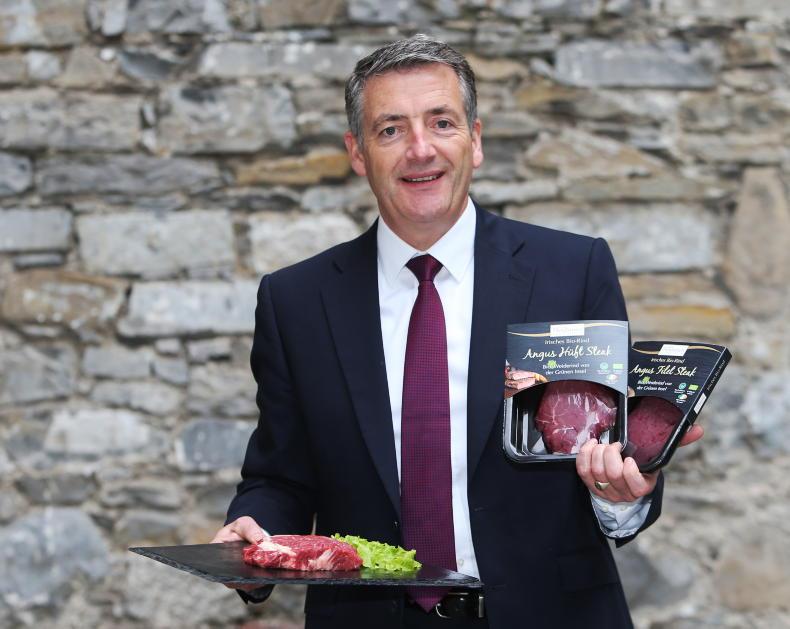
John Purcell.
John Purcell – Managing director of Good Herdsmen
Currently paying €4.70/kg, plus Angus bonus for certified organic beef
John has been farming organically since 1997. In 2000, he bought a 50% stake in the then-fledgling organic beef and lamb company and became its managing director. Since then, the company has grown significantly. Good Herdsmen was recently bought out by ABP and has shifted its main focus to beef; however, it still processes some organic lamb through their Irish Country Meats connection.
“We have aligned with some of the bigger meat processors and that’s worked out well for us; it’s also benefitted the Irish organic beef sector,” he says. “The partnership we have developed with ABP have given us slaughter locations throughout Ireland, with a spread of different meat factories we can use. This helps keep travel distance down for farmers and, more importantly, cattle for animal welfare concerns.”
Good Herdsmen exports throughout the EU, with Germany and the Netherlands being their largest markets, followed by UK, France, Italy and Denmark. Domestically, you can find their product in all major retailers under The Good Herdsmen brand or under retailers own brands.
“There’s a lot of organic beef on the market in the EU, so it’s hard to get established there,” John says. “Lucky for us, [our excellent quality] makes our job a little easier. When you think of how small a player we are in context of the European market (Ireland have around 40,000 organic cattle – Spain on the other hand have in excess of 250,000), we punch above our weight; mainly due to our meat quality and modern processing facilities”
Though the latest organic scheme isn’t focusing on organic beef and lamb, John says there is still room for more beef farmers to convert to organic systems – though he says there are some things to consider, as an industry.
“We’re only at 2% of the market, we have such a long way to go,” he continues. “I can’t see an end to [farmers getting a premium price]. I recall in Denmark, they previously allowed as many farmers into the scheme as possible which flooded their organic pig market; causing it to collapse overnight. With a controlled scheme [like we have] there’s much more safety and reassurance for farmers.”
When it comes to the Irish beef industry, there are some wider considerations to be taken into account when converting to organic systems.
“It suits suckler farmers to go organic, but they need to be matched with organic beef finishers,” John explains. “I’d like to see more finishers come into the system to close that gap. We also need beef farmers who can finish in the spring and autumn – we need cattle 12 months of the year.
“We have something Europe wants,” he concludes. “The organic business model is good, so let the beef farmers into the scheme – please.”
Tillage:
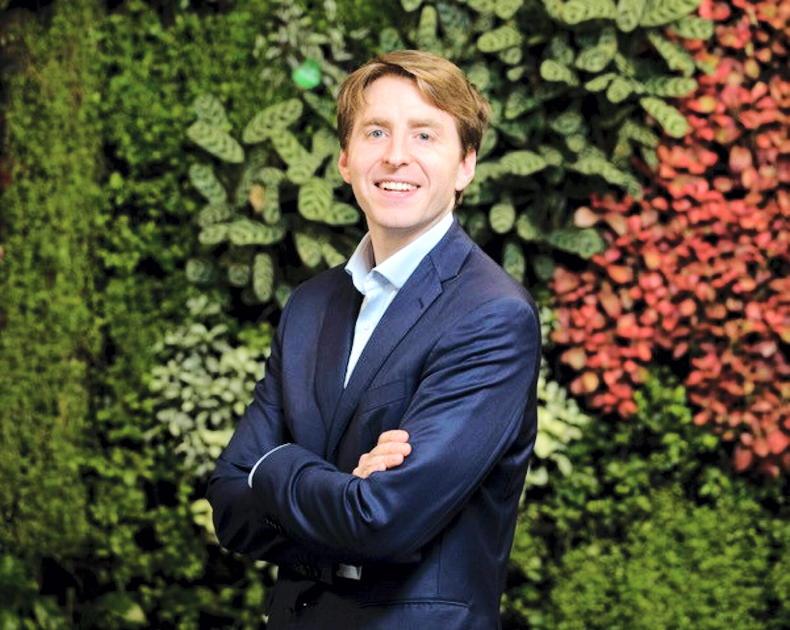
James Flahavan.
James Flahavan – Manager at Flahavan’s Oats
Harvest 2020 saw them pay a base price of €365/t for certified organic oats
Over the years, Flahavan’s have had to import organic oats from other areas, like the UK, to offset demand. James Flahavan would love to see more Irish oat farmers going organic.
“There isn’t enough supply in the Irish market at the moment for us to get the requirements for organic oats,” he says. “We’re hoping the supply will increase across the next couple of years. Our supply record would have been up to 3,000t for summer oats – last year we were over 4,000t, the majority is coming from Ireland but the supply gap is where we need to bring it in.”
Flahavan’s has an excellent reputation in Ireland and abroad for the quality of their product line. James says much of this is due to the quality of Irish grown oats.
“The quality of the oats grown in Ireland is amongst the best in the world, if not the best,” he says. “We have a good raw material to start with and then we have our own processing methods and it’s translated into our export market growth. The UK market, in particular, seems to be going well for us.
The Irish market would be extremely important to us,” he says. “The Irish would have a slightly higher consumption of organic oats than the UK but with the UK’s larger population we export more organic than we would sell in Ireland. Convenience is two thirds of the UK market (single serve pots, sachets) while more traditional products are sold in Ireland (bagged Progress Oatlets; organic porridge oats).”
While plant-based milk replacements don’t replicate the nutritional content of cow’s milk, Flahavan’s recently launched their new oat drink range (one of which is certified organic) making for a good Irish alternative to those who don’t consume traditional dairy products.
“Of the Irish organic oats [we receive], we keep a portion for our organic oat drink – it had to have a unique selling point that would appeal to Irish consumers,” says James.
In terms of the future of organic tillage, James says he can only comment on the growth they see happening at the moment.
“There’s still demand outstripping supply and there’s scope for more to come in, whether it’s unlimited I can’t say, but there’s plenty more opportunity. Compared to conventional tillage farming, it’s a significant premium in price for organic oats.”
While many Irish consumers aren’t comfortable increasing their weekly food spend, there is a growing cohort who are making the choice to purchase organic foods. Why is this?
Karen Tyner, senior business manager at Bord Bia, says organic growth has been faster than conventional in the past few years and has enjoyed seeing a growing range of organic products on supermarket shelves.

Karen Tyner.
“Domestically, our most recent consumer research shows that the appetite for organic produce is increasing among Irish consumers,” she says. “For example, in 2020 we saw that one quarter of consumers bought more organic food since the onset of COVID-19, with 47% of those surveyed willing to pay more for it.”
The market research to which she refers also indicates health is the number one reason Irish consumers are making organic purchases, followed by environmental reasons. Additionally, “taste” came in third as to why consumers make organic purchases, with 21% of respondents saying they feel organic foods taste better.
That said, it should be noted that two thirds of respondents said they would still rather buy local than organic.
A global reputation
Internationally, Karen believes the future for Irish organic foods is promising.
“We believe there’s a growing opportunity for organic exporters, particularly in the German, French and Dutch markets, where Ireland enjoys a strong image as a food producer,” she says. “Germany is the largest European market for organics and it’s where we focus a lot of marketing activity.”
However, she also warns that the organic market is generally the first to be impacted by economic downturns.
“Given the current uncertain economic outlook, we need to monitor the market carefully to ensure Irish producers can proactively respond to any changes or drops in demand.”
UK-based market research company Kantar shared their most recent data on Irish organic consumer behaviour. These figures are from the preceding 52 weeks to the 21 February, 2021.
In this time, total organic food sales in Ireland increased by 19.1%, coming in at €228,645,000. From this amount, €17.03m (an increase of 27.4%) accounted for organic fresh meat sales, while €90.242m (an increase of 18.2%) accounted for fresh fruit, vegetables and salads.
Dunnes Stores
“Our organic produce sales have grown over the last 12 months and we are currently working with Bord Bia to source more Irish grown organic produce. We believe the demand for organic produce will continue to grow as the population makes more health and lifestyle changes following the impact of the pandemic.”
Lidl
“Lidl has seen a 47% increase across our organic fruit and vegetable range over the past 12 months and we have noticed a steady growth year on year in this category. However, the growth we’ve seen elsewhere in our fruit and vegetable range is higher and continues to grow at a quicker pace.”
Aldi
“We have seen an increased demand for organic products throughout a number of our categories over the last few years.”
Areas of growth are in dairy, including increased demand for organic milk and yogurts, as well as fruit and vegetables, frozen vegetables (“Frozen Garden Peas has grown an impressive +250% since launch and is the outstanding performer in this category,” they say), Irish Smoked Salmon and salmon fillets (“which illustrates that consumers will pay more for premium organic products”), seasonal Fresh Organic Whole Turkey (a volume increase of 64% since its 2017 launch) and organic wine.
SuperValu
“We did €13.1m in retail sales on organic produce in 2020 [showing a 26% year-on-year increase]. We have over 50 lines in the range and continue to add new lines every year.”
They also say key call-outs would be on their sustainable packaging efforts on organic product.
Access to market remains a huge concern for many farmers considering organic conversion. With this in mind,
Irish Country Living spoke with some larger Irish organic processors to get their angle on demand for product
and the future of organic farming in Ireland
Dairy:

Vincent Cleary.
Vincent Cleary – Managing director of Glenisk
Currently paying up to 60c/l for certified organic milk
Over the years, Vincent has seen organic demand grow in ways no one ever expected. He says he doesn’t see an end to the growth in this area, or in demand for Irish organic milk, but that more processing systems should be put in place to support Irish dairy farmers looking to convert.
“To me, the world is just going in this direction,” he says. “I’ve been seeing this growth since 1994, when I returned from Germany. Organics was one of the first things we embraced, then. At that time, people said it was a fad – but it’s still growing all these years later.”
The past year has seen growth in organic dairy markets across the EU, and for Glenisk it has been no different. This is partly in thanks to the pandemic.
“We saw last year, when panic buying first ensued, our organic sales jumped by 50% (in adult yoghurts),” Vincent says. “It quietened as the year went on, so at the end of the year we went from about 125,000l to 155,000l (in milk volume) per week, which was around a 20% increase over the year. The growth trajectory is still pointed in the right direction.”
Vincent says that there is demand for organic dairy in many areas, but particularly in organic baby (formula) foods.
“Ireland has yet to touch organic baby food, I think that’s the next frontier,” he says. “The volume isn’t there for organic dairy; we need one of the larger co-operatives to see organic milk as a point of difference to convince more dairy farmers to go organic. It’s a no brainer in the long term; families are getting smaller and parents want to give their kids the best possible start.
Glenisk’s organic dairy farmers vary in size, from 24 cow herds up to around 300. They buy milk from farmers in organic conversion as well as certified organic milk.
Beef:

John Purcell.
John Purcell – Managing director of Good Herdsmen
Currently paying €4.70/kg, plus Angus bonus for certified organic beef
John has been farming organically since 1997. In 2000, he bought a 50% stake in the then-fledgling organic beef and lamb company and became its managing director. Since then, the company has grown significantly. Good Herdsmen was recently bought out by ABP and has shifted its main focus to beef; however, it still processes some organic lamb through their Irish Country Meats connection.
“We have aligned with some of the bigger meat processors and that’s worked out well for us; it’s also benefitted the Irish organic beef sector,” he says. “The partnership we have developed with ABP have given us slaughter locations throughout Ireland, with a spread of different meat factories we can use. This helps keep travel distance down for farmers and, more importantly, cattle for animal welfare concerns.”
Good Herdsmen exports throughout the EU, with Germany and the Netherlands being their largest markets, followed by UK, France, Italy and Denmark. Domestically, you can find their product in all major retailers under The Good Herdsmen brand or under retailers own brands.
“There’s a lot of organic beef on the market in the EU, so it’s hard to get established there,” John says. “Lucky for us, [our excellent quality] makes our job a little easier. When you think of how small a player we are in context of the European market (Ireland have around 40,000 organic cattle – Spain on the other hand have in excess of 250,000), we punch above our weight; mainly due to our meat quality and modern processing facilities”
Though the latest organic scheme isn’t focusing on organic beef and lamb, John says there is still room for more beef farmers to convert to organic systems – though he says there are some things to consider, as an industry.
“We’re only at 2% of the market, we have such a long way to go,” he continues. “I can’t see an end to [farmers getting a premium price]. I recall in Denmark, they previously allowed as many farmers into the scheme as possible which flooded their organic pig market; causing it to collapse overnight. With a controlled scheme [like we have] there’s much more safety and reassurance for farmers.”
When it comes to the Irish beef industry, there are some wider considerations to be taken into account when converting to organic systems.
“It suits suckler farmers to go organic, but they need to be matched with organic beef finishers,” John explains. “I’d like to see more finishers come into the system to close that gap. We also need beef farmers who can finish in the spring and autumn – we need cattle 12 months of the year.
“We have something Europe wants,” he concludes. “The organic business model is good, so let the beef farmers into the scheme – please.”
Tillage:

James Flahavan.
James Flahavan – Manager at Flahavan’s Oats
Harvest 2020 saw them pay a base price of €365/t for certified organic oats
Over the years, Flahavan’s have had to import organic oats from other areas, like the UK, to offset demand. James Flahavan would love to see more Irish oat farmers going organic.
“There isn’t enough supply in the Irish market at the moment for us to get the requirements for organic oats,” he says. “We’re hoping the supply will increase across the next couple of years. Our supply record would have been up to 3,000t for summer oats – last year we were over 4,000t, the majority is coming from Ireland but the supply gap is where we need to bring it in.”
Flahavan’s has an excellent reputation in Ireland and abroad for the quality of their product line. James says much of this is due to the quality of Irish grown oats.
“The quality of the oats grown in Ireland is amongst the best in the world, if not the best,” he says. “We have a good raw material to start with and then we have our own processing methods and it’s translated into our export market growth. The UK market, in particular, seems to be going well for us.
The Irish market would be extremely important to us,” he says. “The Irish would have a slightly higher consumption of organic oats than the UK but with the UK’s larger population we export more organic than we would sell in Ireland. Convenience is two thirds of the UK market (single serve pots, sachets) while more traditional products are sold in Ireland (bagged Progress Oatlets; organic porridge oats).”
While plant-based milk replacements don’t replicate the nutritional content of cow’s milk, Flahavan’s recently launched their new oat drink range (one of which is certified organic) making for a good Irish alternative to those who don’t consume traditional dairy products.
“Of the Irish organic oats [we receive], we keep a portion for our organic oat drink – it had to have a unique selling point that would appeal to Irish consumers,” says James.
In terms of the future of organic tillage, James says he can only comment on the growth they see happening at the moment.
“There’s still demand outstripping supply and there’s scope for more to come in, whether it’s unlimited I can’t say, but there’s plenty more opportunity. Compared to conventional tillage farming, it’s a significant premium in price for organic oats.”








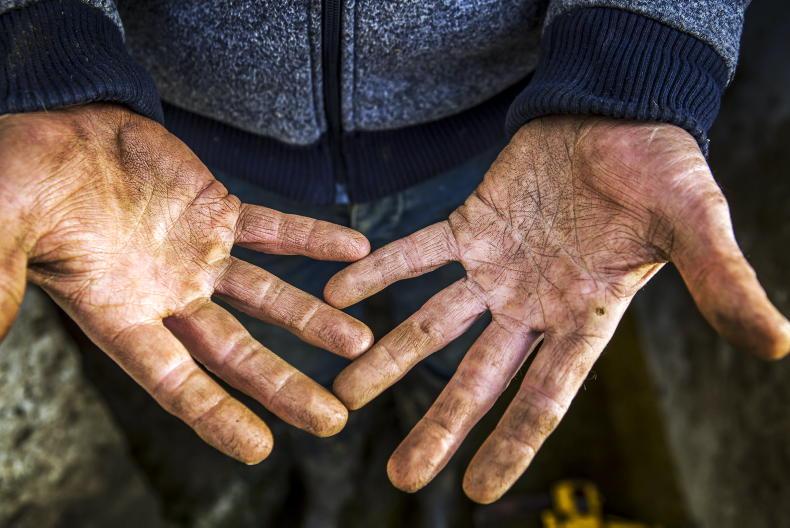
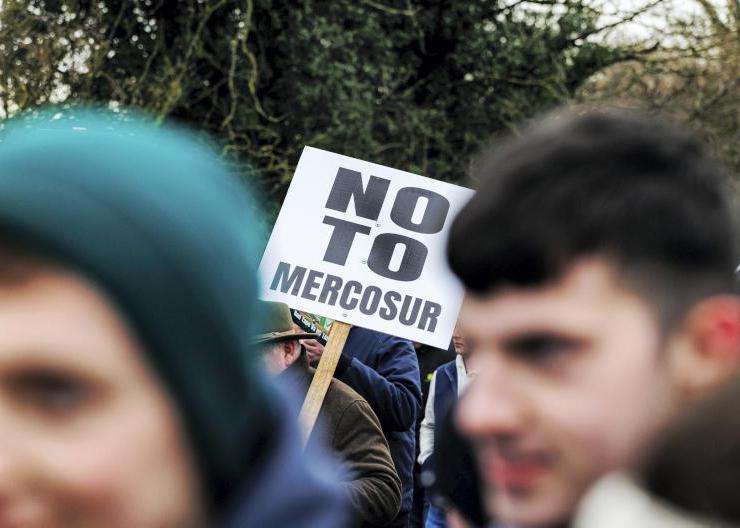

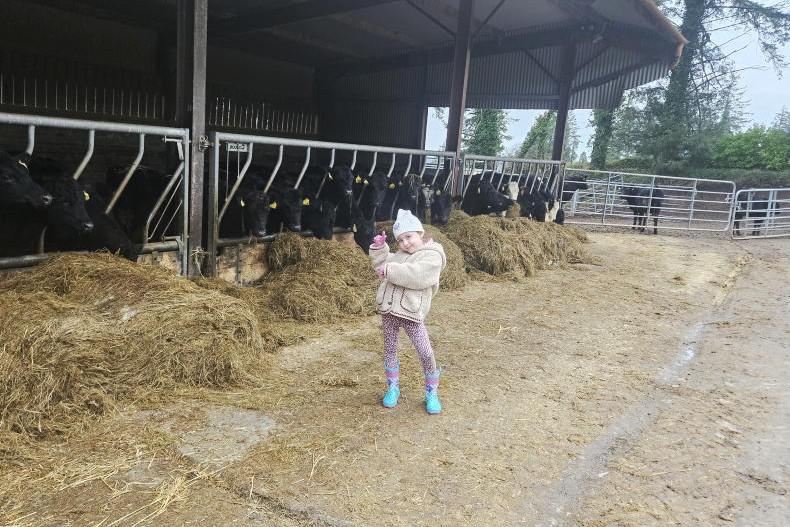
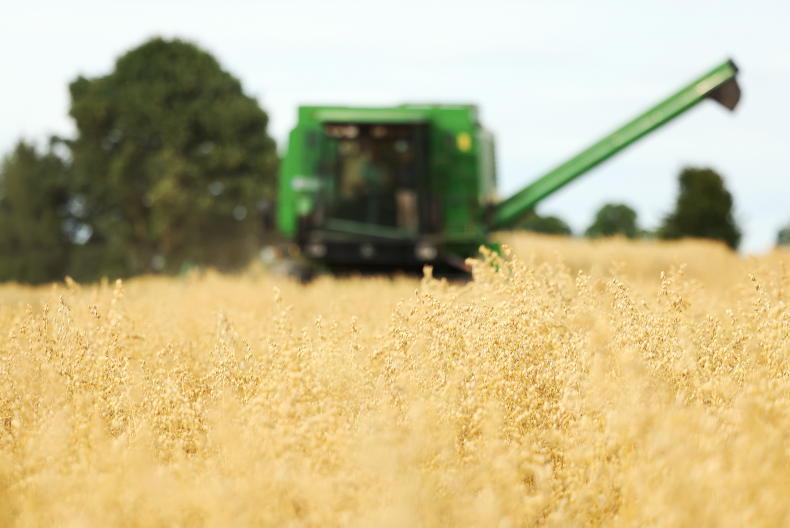

SHARING OPTIONS